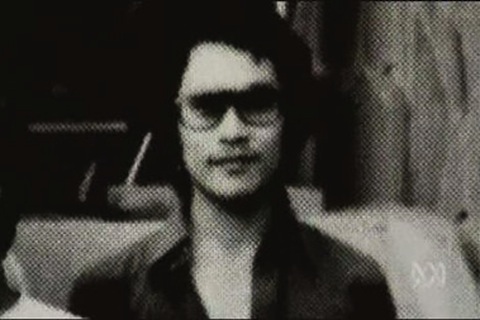
Like many a non-fiction nerd whose tastes run toward the sinister, I was enraptured by Richard Lloyd Parry’s People Who Eat Darkness. The book’s central narrative was compelling enough—a young British woman’s disappearance set against the backdrop of Japan’s hostess-club industry. But what really makes the work sing is Parry’s exploration of media drama, and how so much of it is based on unspoken codes of conduct. Just like Roppongi hostesses and their salarymen clients, who instinctively know which sexual lines can never be crossed, reporters and distraught subjects are expected to fill pre-determined roles on the public stage. And as People Who Eat Darkness makes clear, we detest those who refuse to play along:
In Britain, just as in Japan, powerful conventions govern the way that people under the load of unbearable stress are expected to behave in public. We like our anguished victims to be passive, confused, and broken; where those characteristics are absent, suspicion flourishes…
A Japanese family, deprived of their daughter in sinister circumstances, would shuffle before te cameras with downcast eyes. Their words would be halting and few. They would express love for their child, anxiety for her safety, and appeal to the good nature of her abductors to give her back. There would be tears, and even apology, or something close to it, for “causing inconvenience” by their plight…
In Britain, there is a little more room for the expression of individual anger and resentment, but only within limits. An unspoken code governs people in these situations, as strict in its was as old formalities of mourning.
Parry then describes the first press conference held by the father and sister of the abducted girl:
The photographers were crouching, lurking at the bottom of the podium, their lenses angled upwards. They were waiting for the shot that would make the following day’s papers: a finger brushing away a tear, a face crumpled with anxiety and despondency, even just the clenched hands of father and daughter. But there was nothing of the kind.
The press and public did not like this refusal to obey convention one bit. They found it unsettling, argues Parry, for it stripped us of our chance to feel the catharsis we so desperately crave. By refusing to break down on the podium, these family members took away our theater. And so we punished them by treating them as partly responsible for young Lucie Blackman’s bitter fate.
Read the whole book for more; it also includes a great thread about the marginalized culture of Koreans in Japan, and how the burden of “otherness” might have affected the development of the tale’s villain (pictured above).
Oh, and Parry is also the writer behind one of my all-time favorite Granta stories, “What Young Men Do.”


Like gas stations in rural Texas after 10 pm, comments are closed.